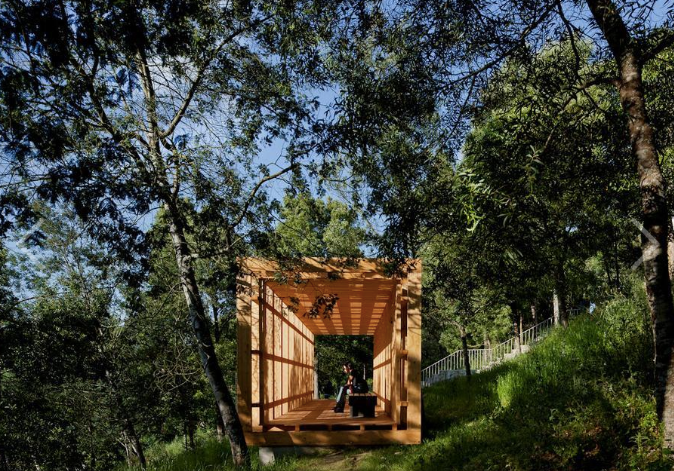
The Horizon 2020-funded project Urban Innovative and Inclusive Nature – URBiNAT - believes that solutions inspired by nature can have a positive impact on the planet, as well as on human health, wellbeing, social cohesion, sustainable economic development and quality of life.
Targeting areas of urban regeneration across Europe, URBiNAT is encouraging citizens’ participation in the design of human habitats worth living in.
In the run up to European Green Week, we sat down with URBiNAT’s members Nathalie Nunes and Américo Mateus to learn more about their five-year project, and how their work could contribute to sustainable and greener cities in Europe.
How does URBiNAT help inspire the next generation of young Europeans to take an active interest in climate change and fight for sustainable policies?
Nathalie Nunes: URBiNAT has been developing activities with citizen’s local associations, municipalities and also targeting children and youth. We framed activities that are adjusted to their interests. For us, having children participating is a big issue, it is their right to participate, and we see them as citizens today and for the future of tomorrow. So what we want to advance is raising awareness on how children and youth need to participate without being held back by the expectations of adults, because we already have children who are activists who are already concerned about climate change and sustainable policies, so we need to support initiatives. For us, we need to be at the centre of the process.
Américo Mateus: When we are talking about the next generation and climate change, the burden is on the shoulders of youngsters and they feel as if they are receiving a very bad heritage, and the wheel of change is not so big. If you address this just by theoretical models and statements, it will only empower that negative idea. So what we are doing is going into schools and applying new dynamics which are playful and enjoyable. So they are participating, co-creating and implementing these nature-based solutions in their schools and in their communities. They can directly see the change and the immediate impact in front of them. This removes the weight from their shoulders, the idea that the world is ending from climate change.
URBiNAT focuses on Nature-based solutions (NBS). Can you explain why NBS’s are so important and how they differ to engineered or technology based solutions?
Nathalie Nunes: URBiNAT is bringing a catalogue of nature-based solutions, and what we want to do is co-create more. There are four types of NBS in our catalogue: Territorial and Technological solutions, comprising products and infrastructures, together with Participatory solutions and Social and Solidarity Economy solutions, comprising processes and services. What we want to prove with these material and immaterial dimensioned NBS’s is that they can only contribute to urban regeneration if you also have this immaterial participation. So participation and social solidarity and economy are also part of our definitions for NBS.
Américo Mateus: Why are NBS’s different from engineering and technology based solutions? Because they are human based. Technology, without the humanisation of technology is not useful. There is no understanding and there is no easiness of use. What we are saying is that NBS can be technological but they are united by human based actions.
How does URBiNAT measure success and can you share an example or statistic?
Nathalie Nunes: URBiNAT has developed participatory processes that are solutions by themselves. So we will have nature-based solutions that are constructed in big spaces and infrastructures, but at the same time, participatory NBS solutions and social and solidarity solutions are already being implemented, so they are there before the construction. This is a success to have these institutions exist already, managed by the citizens in the participatory process.
Américo Mateus: One of the issues of this project is ownership. Once citizens feel that the end results are theirs, then they feel the need to manage to be supportive of the future usage, and I think by starting the NBS’s before, there is a measure that says these citizens are engaged in the ownership and development of the space (including usage). Since we have an observatory, we have been able to measure qualitative and quantitative indicators done with citizens. In the end, we want to show and highlight that they are engaged in the space more than any other indicator.
What message do you have for the future of sustainability and greener urban cities in Europe?
Nathalie Nunes: We see sustainability as a holistic process, we see taking into consideration other dimensions of life in the city, what we want to give is the importance of co-creating public spaces with citizens and of a multi-stakeholder approach, engaging researchers, practitioners, the municipalities, the territories, NGOs and companies.
Américo Mateus: I think the message would be WAKE UP! There is not a ‘google’ solution for your future. You have to do it yourselves. You’re talking about co-creation but engagement is very hard. Citizens are not yet awake enough to take an active part in activism for climate change, sustainability and everything else that is coming. There is a need for citizens to design their own future, no one will do it for them but themselves.
*
Nathalie Nunes is a researcher at the Centre for Social Studies of the University of Coimbra in Portugal, and a member of the co-coordination team of URBiNAT.
Américo Mateus is a creative director at GUDA, head of research TRIE-Lusófona, and a research member of URBiNAT on participatory design and communications.
More info:
Details
- Publication date
- 23 May 2022
- Author
- European Research Executive Agency
